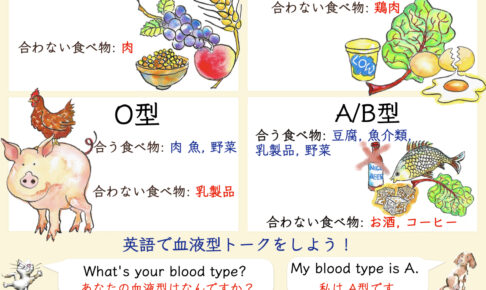

ネイティブは話をする時に、「come to think of it」というフレーズをよく使いますが、日本人が英語を話す時には、「come to think of it」をそれほど使いません。
「come to think of it」は「考えてみれば」や「そう言えば」という意味になります。なぜここでは「come」が使われているのでしょうか。
この「come」は「when I come」という意味になります。「when I come to think of it」と「come to think of it」はほぼ同じ意味になりますが、話をする時には「come to think of it」は「when I come to think of it」より言いやすいです。
[audio:https://www.eigowithluke.com/wp-content/uploads/2011/11/come-to-think-of-it.mp3|titles=come to think of it]
Come to think of it, I would actually quite like to go to Hokkaido.
考えてみれば、 北海道に行ってみたいな。
なぜ、上の文章では、話し手は「come to think of it」を使ったのでしょうか。話し手は、初めはあまり北海道に行きたくなかったけれど、よく考えたら、「やっぱり北海道には色々な面白いところがあるな。」というふうに思われ、自分の考え方が少し変わったことを示すために「come to think of it」というフレーズを使ったのです。
Come to think of it, I think that John would give a great speech.
そう言えば、ジョンは上手にスピーチが出来ると思う。
Of course, John would give a great speech.
もちろん、ジョンは上手にスピーチが出来るよね。
同僚はどの会社員が上手にスピーチが出来るかを考えています。一番目の文章では、話し手は「他の人がいいと思っていたけれど、よく考えると、もしかしたらJohnも上手かな。」と考えています。一方、二番目の文章では、ジョンは上手にスピーチが出来ることは当たり前です。
つまり、少し予想外の事を言ったり、自分の考え方が変わったりした時に「come to think of it」と言います。また、自分の考え方が変わってきた時にも、「come to think of it」と言えます。














いつもためになる情報、ありがとうございます。
Come to think of it, today is straight “1”, November 11, isn’t it?
こんな言い方はできるんでしょうか?
そういえば、今日は11月11日、1続きの日ね。
Hi Totorin,
Yes absolutely. You used “come to think of it” perfectly. However, the English afterwards is a little hard to understand. You might one to say, “the date today is all ones” or something like that.
Hi Luke,
I think about the phrase:
・” come down to the idea ”
It looks similar to the phrase ” Come to think of it,”
If someone siad like:
” Come to think of it,I think that John would give a great speech.”,
you explaned that ” Come to think ” means the speeker would think some different ideas before what they said so.
I mean that at first,the speeker could not think or could not have predictions that John would give a great speech.
But,the speeker thinks ” John would give it ” after all or so far.
The point is that the phrase is the first statement which shows the speeker’s idea.
On the other hand,the usage of the phrase ” come down to the idea ” seems different from the previous phrase.
The both phrases are similar on its meaning.
But,I noticed that the phrase ” come down to the idea ” is usually used to describe why someone think so.
For example,
A:” Come to think of it,I think that John would give a great speech.”
B:” Why do you think John would give it so?”
A:” I think it came down to the idea that John had a great policy against very troubled politics as many countries do.”
correct:
・spEAker= a person who gives a spEEch
Lukeさん、こんにちは
とても分かりやすいご説明、ありがとうございます。
少しだけおしえていただきたいのですが、例文のitは
何を指しているのでしょうか。
例えば、数人で旅行の話をしていて、それまでに話題に上がっていた内容を指していると理解すればよいのでしょうか。
その事に関して、考えが不意に浮かんだという風な感じなのでしょうか。
よろしくお願い致します。
【例文】
Come to think of it, I would actually quite like to go to Hokkaido.
考えてみれば、 北海道に行ってみたいな。